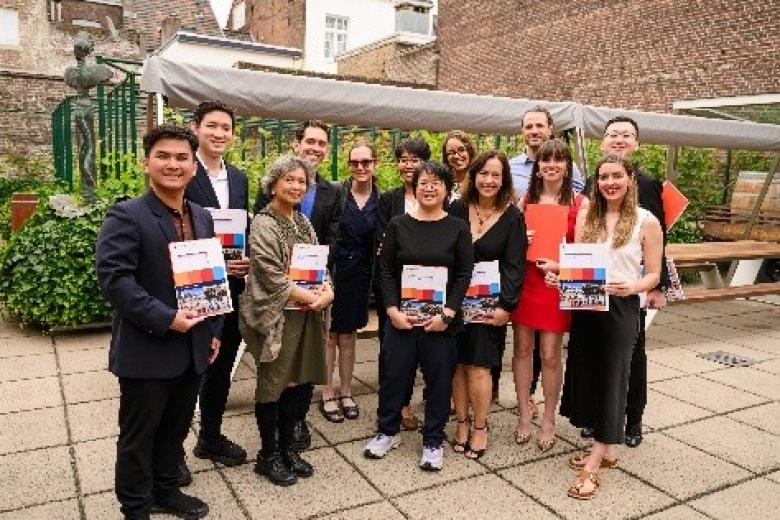What role can academics play in addressing the ongoing crises of global warming and biodiversity loss?
What is the meaning of academia in times of environmental crisis? This question brought us together during a debate initiated and organized by Students for Climate Maastricht, and supported by Sustainable UM2030 and the Faculty of Arts and Social Sciences.
Five panellists were invited to discuss what roles academics can – and should - play in addressing the ongoing crises of global warming and biodiversity loss. More specifically, the panellists were also asked to share their views on what UM can do to support scholars and students in this endeavour.
- Arthur Bribosia (Students4Climate Maastricht)
- Prof. Pim Martens (Chair of Sustainable Development at MSI & Scientivist)
- Prof. Peter Møllgaard (Dean of the School of Business and Economics)
- Dr. Ceren Pekdemir (Coordinator Sustainable Education UM & Assistant Prof. at MSI)
- Sarah Thin (PhD Researcher at the Faculty of Law & Activist)
After a brief pitch from each of these panellists on the issue of the night, moderator Dr. Miriam Meissner quickly moved to involve the questions and opinions of the audience. Over the course of the evening, the outspoken audience raised a lot of interesting - and sometimes provocative - questions, such as on the moral obligation of academics to engage in climate action; on the right tools to educate future environmental leaders; on the role of science to provide practical solutions; or where the tension between ambitious goals and the lack of action stems from. The panellists shared the view that academics play a crucial role in addressing the environmental challenges of our times, and that too little is done to combat these challenges effectively. But how far exactly does the responsibility of academics go to engage in climate action? Can we speak of a moral obligation of scholars and students to become environmental activists?
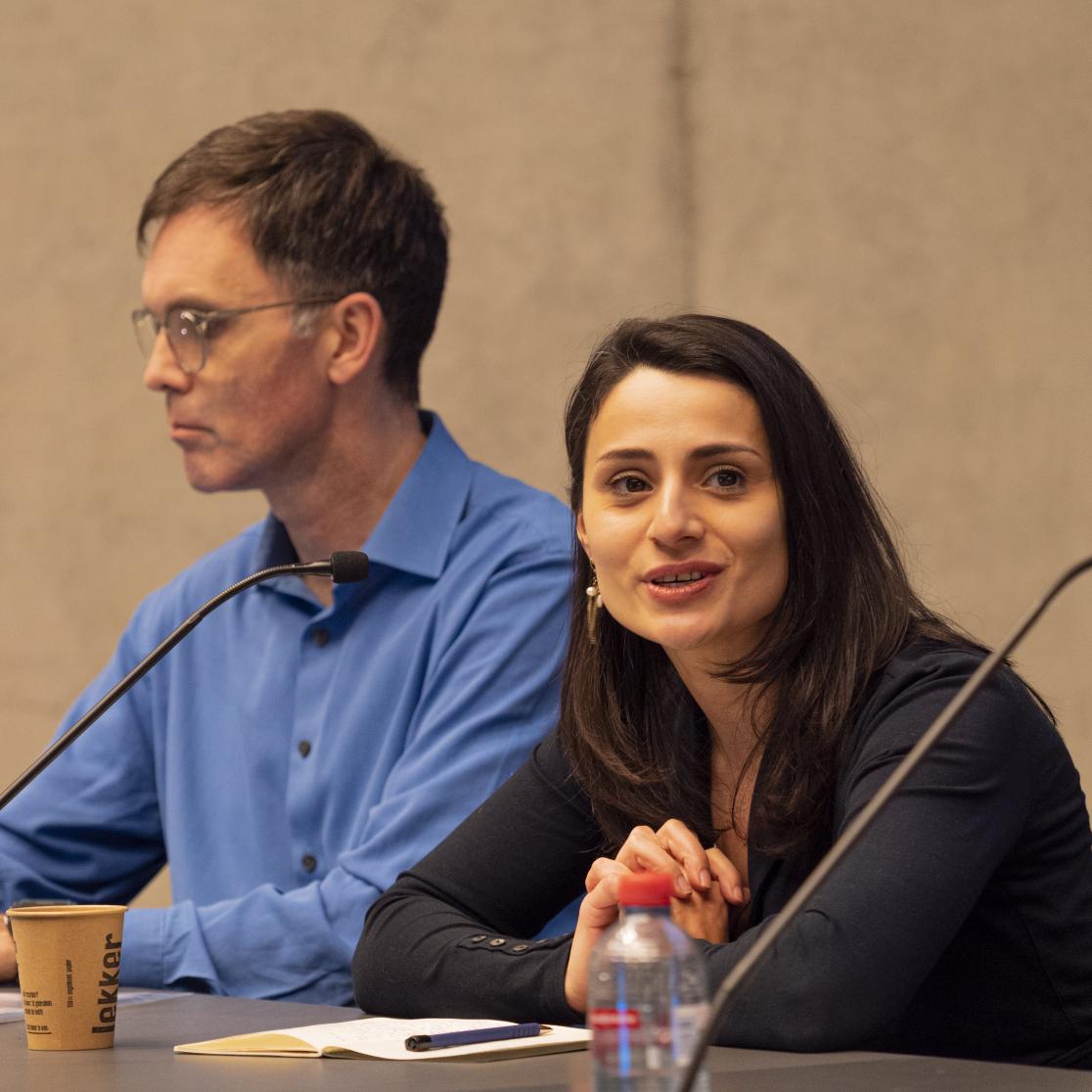
Moral obligations of scholars and students
Already in her opening statement, Sarah Thin argued that researchers and scholars are not engaging enough in climate action, especially given that they are amongst the world´s most educated and privileged people. Sarah is aware of the high pressure on academics, which is for example illustrated by the high percentage of 36% structural overwork. Still, Sarah argued that the role of UM is not just to be an “educational fabric”, but also to be at the forefront of climate action. Similarly for Prof. Pim Martens, solely producing knowledge is not sufficient to fulfil one´s responsibility as a scholar. Rather, Pim Martens advocates for ´scientivism´.
So while some frustrations of too little action by academics were present amongst the panellists, Dr. Ceren Pekdemir reminded us of the pivotal role researchers have already played in the last decades to arrive at the knowledge we are currently at. Science gathered evidence and built consensus over the past decades on anthropogenic climate change, leaving nowadays 2/3 of the world population convinced that climate change is human-induced.
Given that the challenges of sustainability are inherently normative and political, a member of the audience raised the question what kind of education is necessary to enable students to have the political imagination of alternative ways of thinking. How do we educate the environmental leaders of the future properly? And does UM do a good job in this?
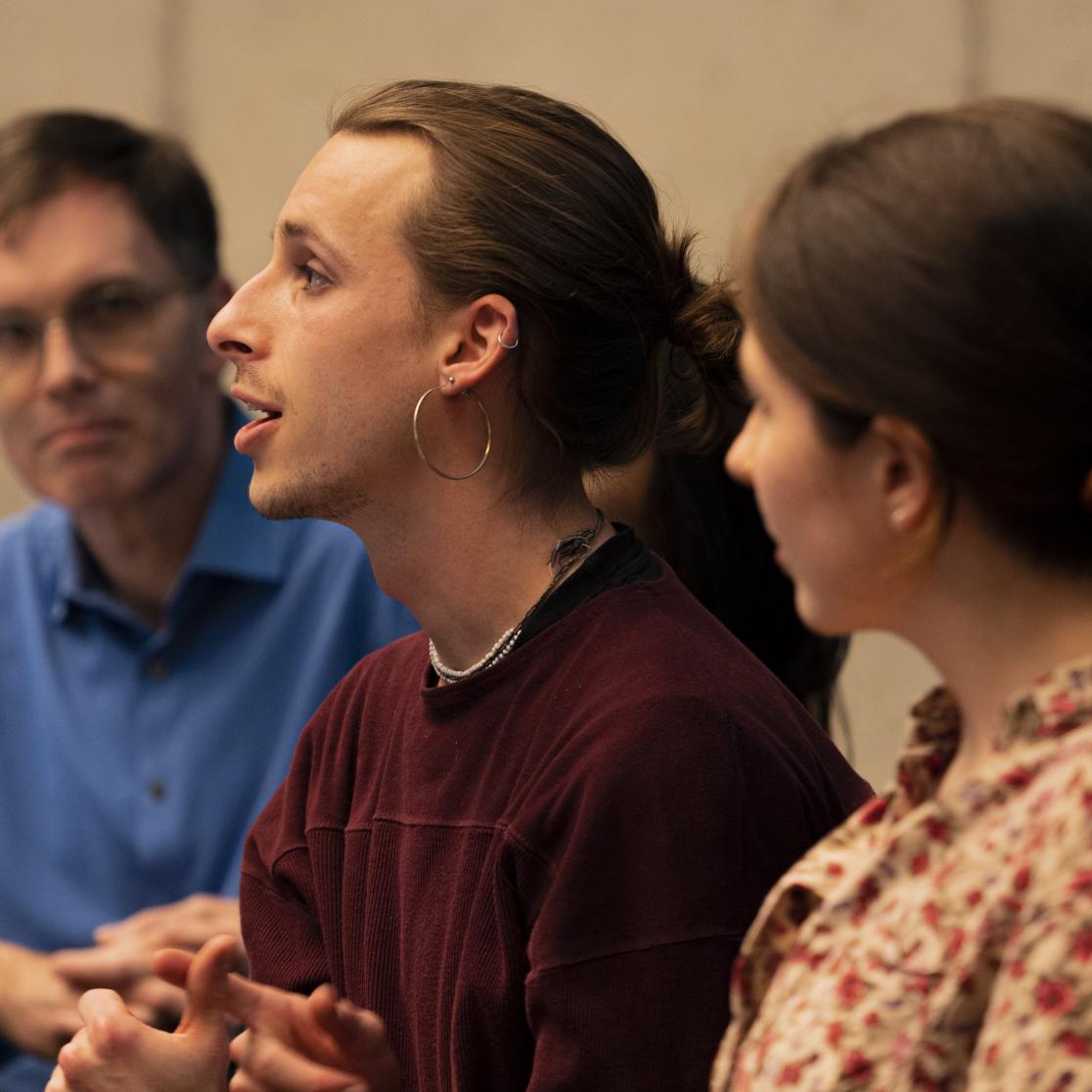
Educating the environmental leaders of tomorrow
All panellists agreed upon the importance of teaching critical thinking and independence of thought, however different conclusions were drawn from this. Arthur Bribosia can´t believe that it is still possible to do a three-year bachelor´s programme and still not treat sustainability or climate change within the curriculum. This observation led Students4Climate to call for a mandatory, inter-faculty course on sustainability. As a dean of SBE and chair of the Danish climate council, Prof. Peter Møllgaard thinks a lot about how to educate the future (environmental) leaders of tomorrow and is proud that SBE is amongst the 30 business schools which have the most positive impact. Peter Møllgaard acknowledges the importance of both disciplinary and interdisciplinary education, while also seeing the need to integrate new developments into the student´s curricula. The question though, whether putting the term “sustainable” in front of “finance” is sufficient, or whether alternative economics, such as degrowth, a-growth or circular economy, should be integrated into the mainstream curriculum, was hotly debated.
For Ceren Pekdemir, sustainability education goes beyond solely educating students on the content of climate change or biodiversity loss. Rather, she would like to see that sustainability competencies, such as future-thinking or systems thinking, are integrated widely into UM´s curricula. This is also reflected in the current sustainability policy of UM. For Pim Martens, transdisciplinary collaborations are of crucial importance for sustainability education, calling for integrating artists´, visionaries´, and practitioners´ views more. Pim Martens went even further to call for a system change – which gained applause from the audience.
As most good debates do, last night´s debate left most of us with more questions than before. Profoundly asked by Ceren Pekdemir and by a member of the audience, are we in touch with our current reality and to what extent do we anticipate the future?
By Svea Grünkorn of Green Office
Pictures by Students for Climate
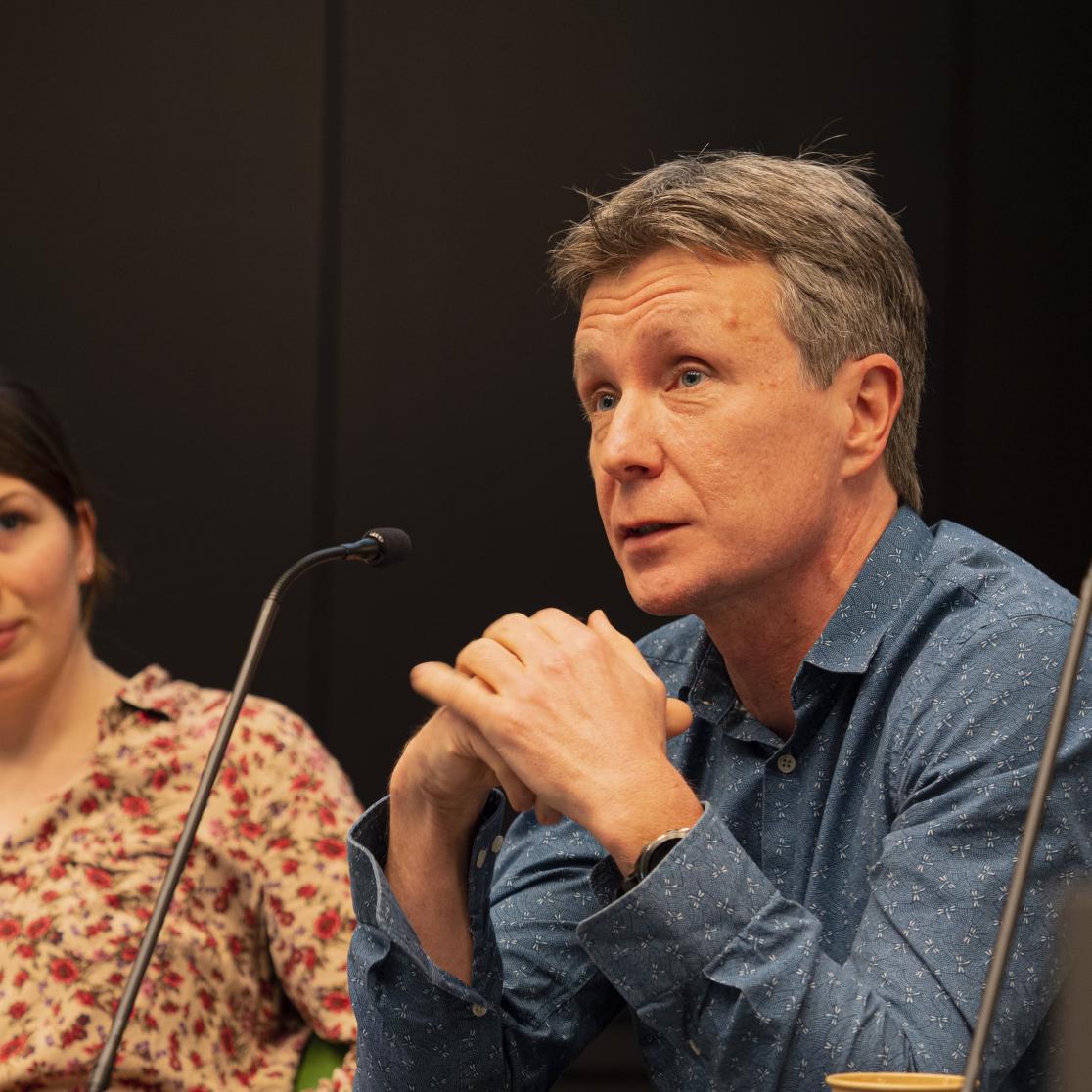
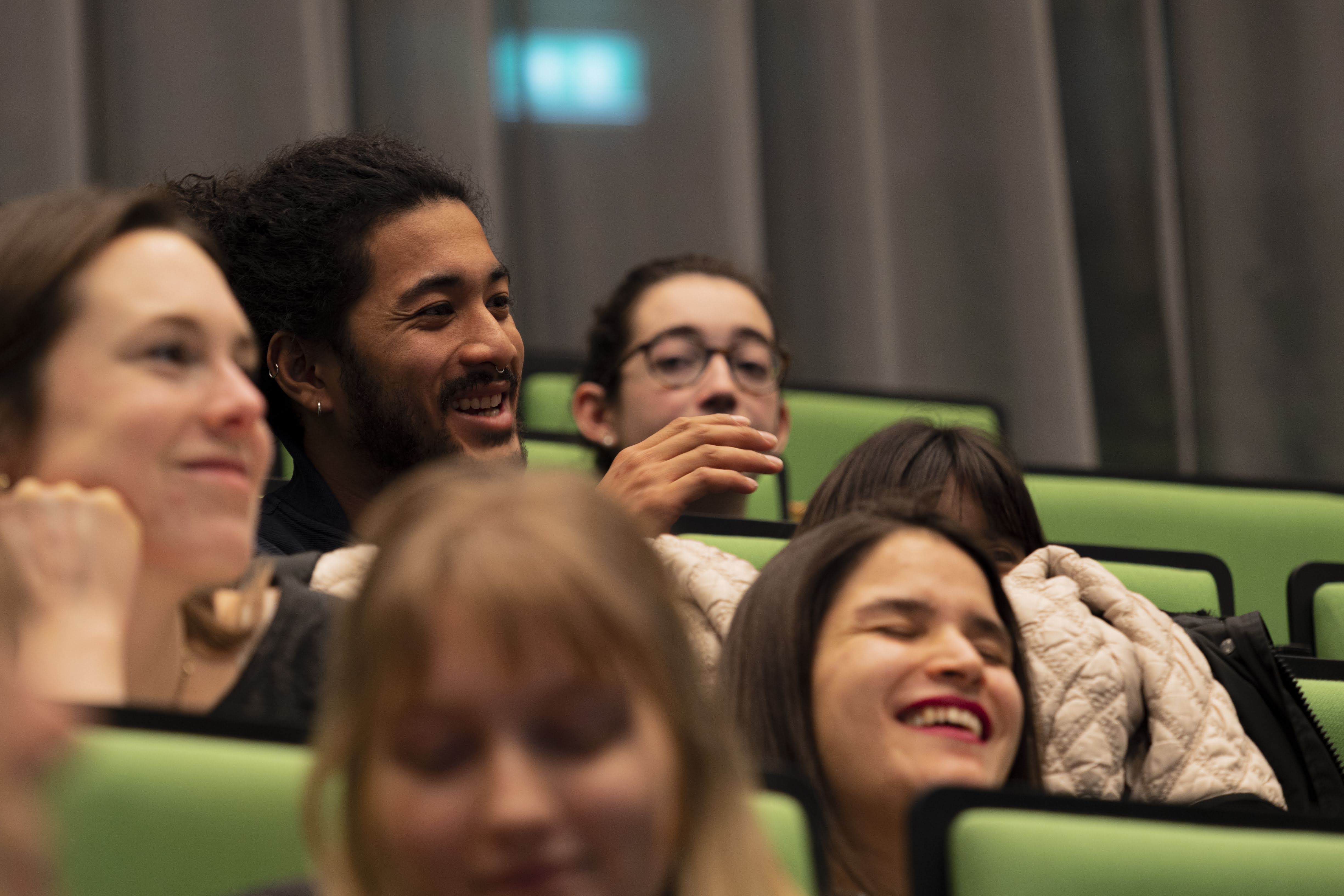
Also read
-
Randwyck Library and the river of knowledge
Monique Notermans and Meike Kerkhofs-Welkenhuizen witnessed the vision behind a modern library come to life.
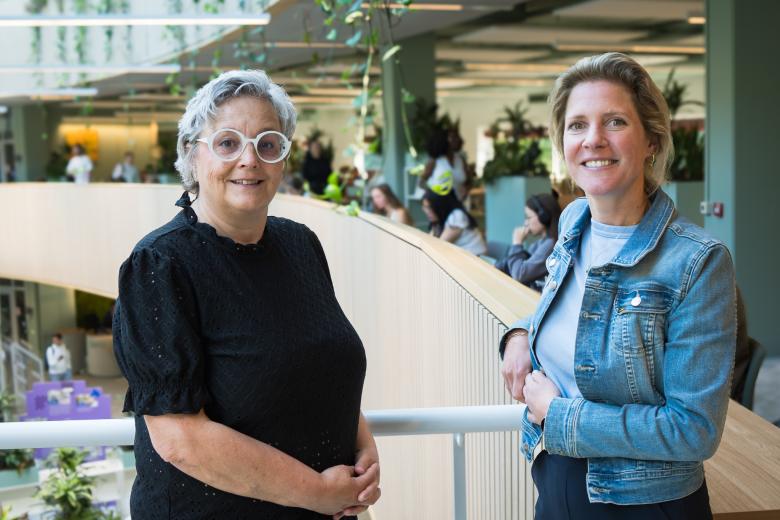
-
M-EPLI PhD Research Spotlight on Blessing Eze
M-EPLI PhD researcher, Blessing Eze, is examining the role of private documents in regulating global value chains.
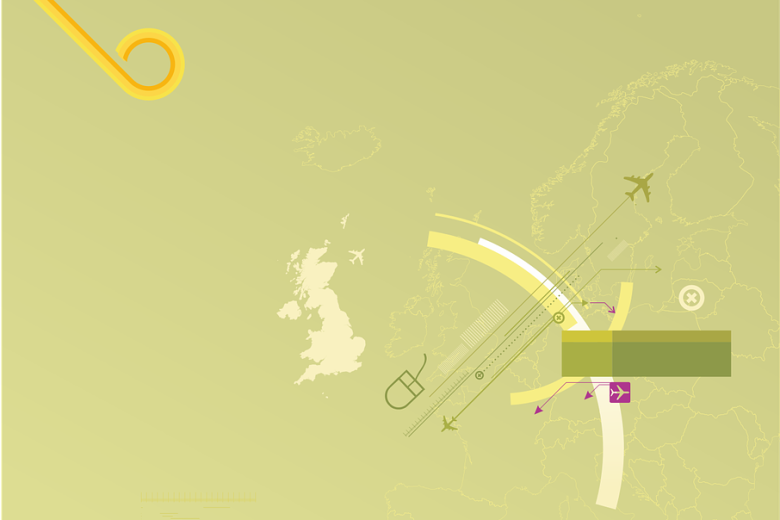
-
MHPE: Looking back and going forward
During the MHPE Campus Period last month we welcomed a new cohort of MHPE students and enjoyed seeing back those who are starting up their Master thesis projects. We are now preparing to hand over to a new MHPE Management Team that will take over on the 1st of September 2025.
